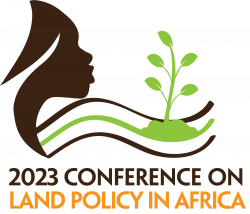Should Africa Leverage Digital Blockchain Technology in Land Administration?
By
Kudakwashe Joshua Chipunza
Research Fellow at the United Nations Economic Commission of Africa
Introduction
In recent years, several countries have adopted blockchain technology in land administration. Although its application is still nascent in Africa, a few countries including, inter alia, Ghana, Kenya, and Nigeria have piloted blockchain technology in their land administration. The adoption of such cutting-edge technology in administering land in Africa could help remove obstacles to wealth creation and bolster economic prosperity on the continent as it helps to solidify land ownership. More importantly, the use of Industry 4.0 frontier technologies such as blockchain technology reinforces the African Union Science Technology and Innovation Strategy for Africa 2024 which seeks to accelerate economic transformation on the continent through leveraging science and technology. While blockchain technology is a promising innovation in land administration, the key question is whether Africa has the capacity to leverage it.
Benefits of Blockchain Technology in Land Administration for Africa
Indisputably, the adoption of blockchain technologies in land administration has several merits. Blockchain technologies ameliorate the information environment which improves transparency by creating records of transactions that are immutable and verifiable. This transparency contributes to a reduction in corruption in land administration. Such technological innovations that curb corruption are important, particularly in Africa which is ranked the highest in the corruption index in 2022 and continues to lose USD $ 140 billion per annum owing to corruption, according to the African Union Moreover, land-related cases are many in law courts and take far too long to resolve. Therefore, if administered successfully, blockchain technology could contribute to achieving the United Nations Sustainable Development Goal 16. Additionally, blockchain technologies could help streamline administrative processes in land governance through automation of processes in juxtaposition to paper-based processes. On the other hand, unlike paper-based transactions which are subject to manipulation, blockchain technologies provide a foolproof land registry.
Hurdles in the Adoption of Blockchain Technologies in Land Administration
However, the adoption of blockchain technologies in land administration in Africa's context could be hindered by inadequate core infrastructure and skillset. That is, while digital literacy is fundamentally pertinent to the effective application of blockchain technologies, in 2021, the World Bank reported that only 50% of African countries have computing skills in their education system relative to 85% globally. Thus, investment in education curricula that are digitally oriented could prepare Africa for blockchain adoption in land governance.
Although the International Communications Union reported that 89% of Africans have mobile cellular phones, the internet penetration on the continent was at 40% relative to a global average of 68.6% in 2022. In this regard, the adoption of blockchain technologies might be stifled by a lack of adequate digital infrastructure which is required to support the effective use of blockchain technologies in land administration in Africa. Besides digital infrastructure, blockchain technology depends on reliable access to electricity to run smoothly yet 43% of Africans do not have access to electricity. Hence, electricity shortages might impede the application of blockchain technologies in land administration in Africa. These hurdles can be surmounted through systematic investment in infrastructure and skills development at national, regional, and continental levels.
Conclusion
Indeed, the attractiveness of Africa's land market is tainted by opaque administration systems that are susceptible to corrupt activities that manifest in seemingly perennial land ownership disputes. As a remedy, some African countries have embraced blockchain technology to administer the land. If blockchain technology is seen as a panacea to the current land administration inefficiencies, the continent should build the capacity required for the successful adoption of this innovation. To this end, both demand-side and supply-side factors required for the effective implementation of blockchain technology in land administration need to be taken into consideration. For example, consumers should be equipped with requisite digital skills that enable consumers to employ blockchain technologies. Besides skills, consumers need to feel secure when using such platforms. This warrants robust regulation that governs the use of blockchain technology in land markets. In addition, there ought to be investment in the prerequisite physical infrastructure required in blockchain systems which includes, among other things, reliable power supply, broadband internet connection, secure data storage facilities, and network infrastructure. Against this backdrop, without adequate infrastructure and skillset, Africa's quest to have a fully-fledged blockchain technology system in land administration could remain a pipe dream.
